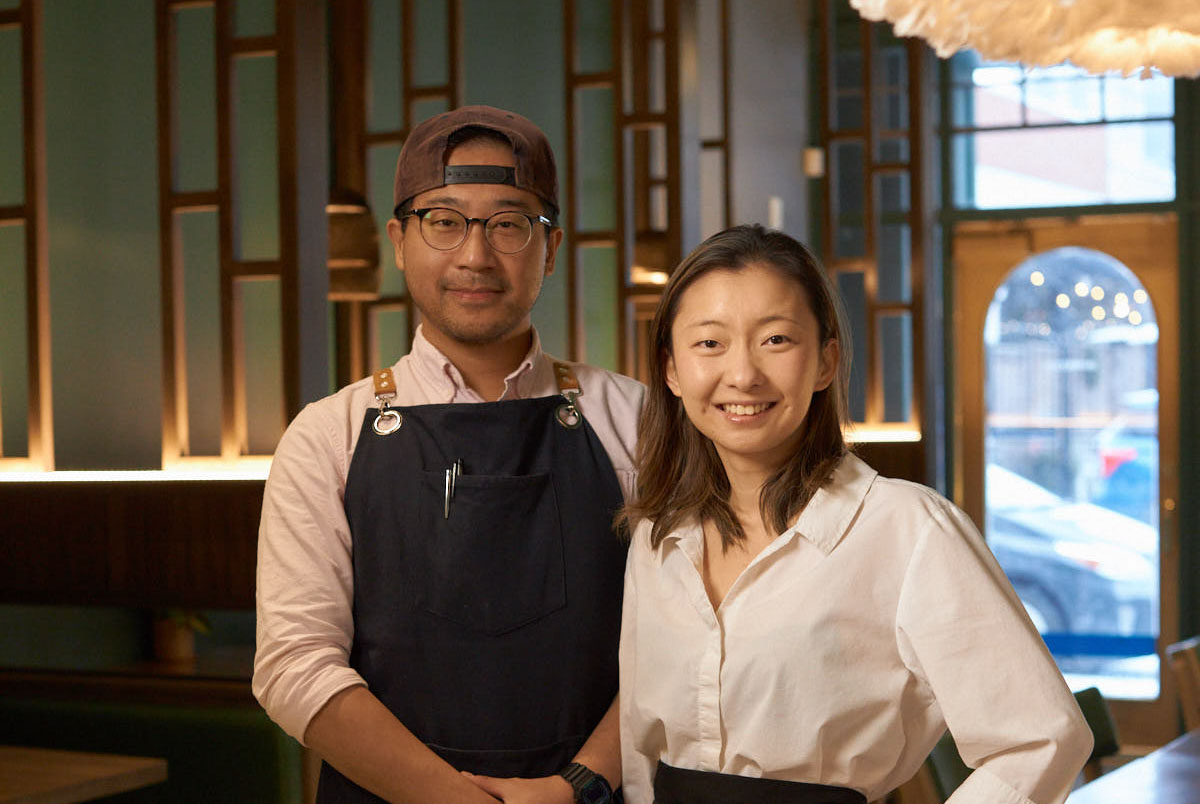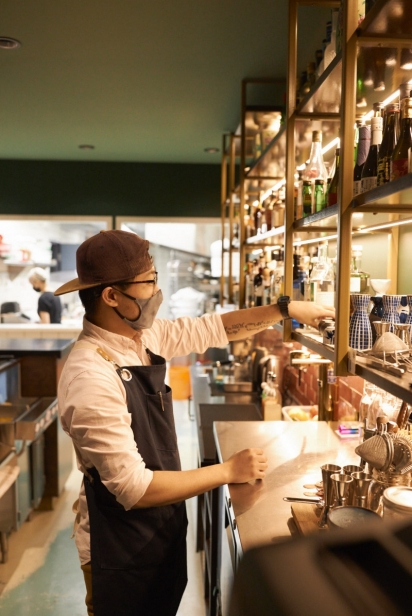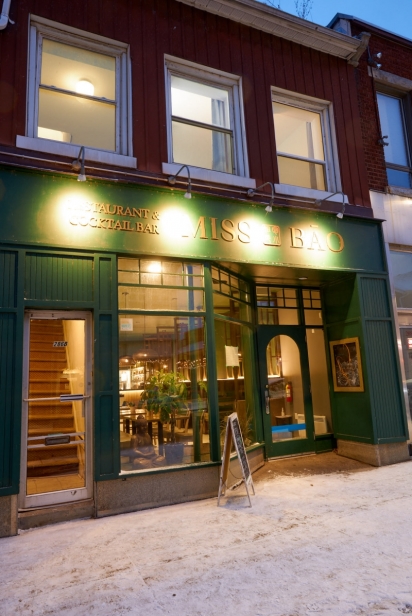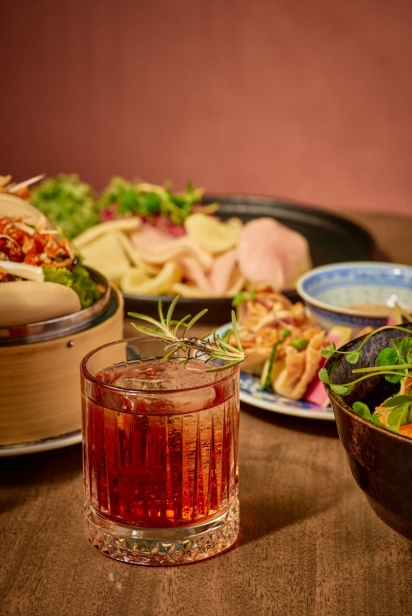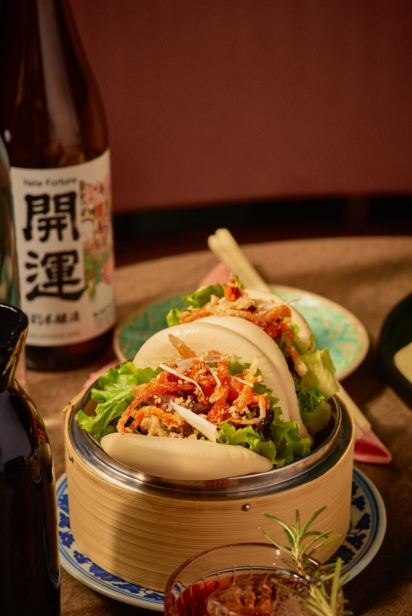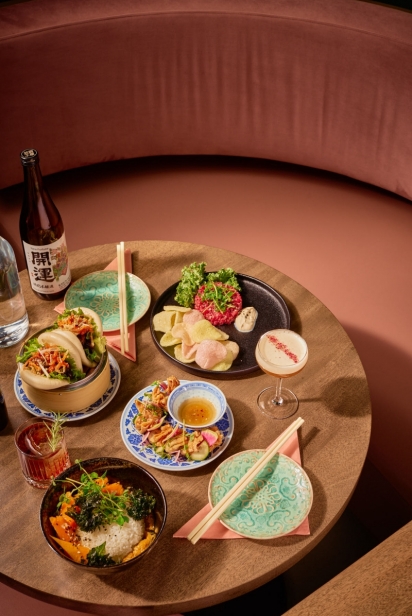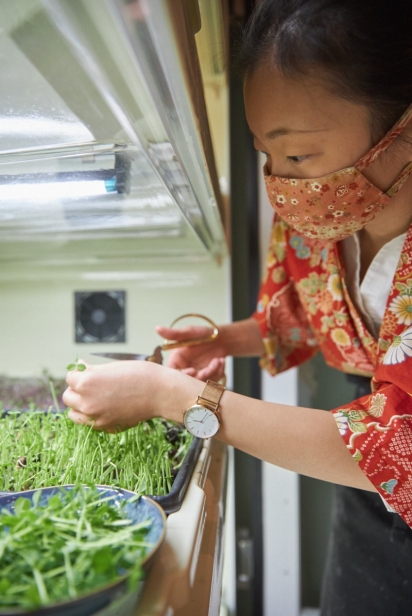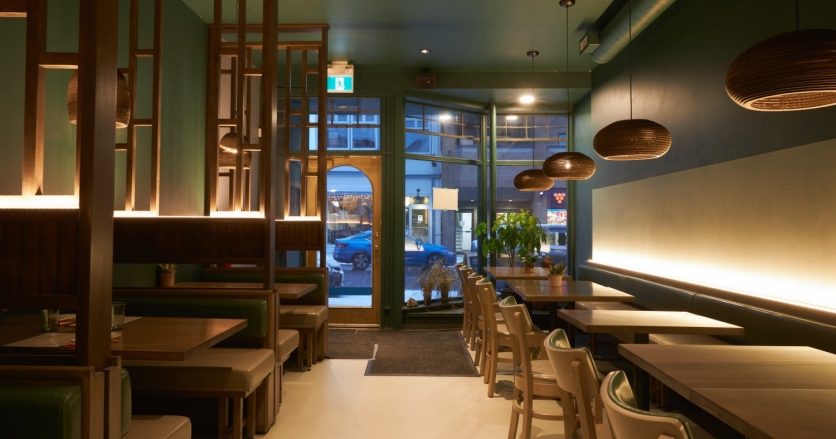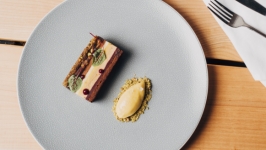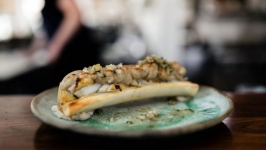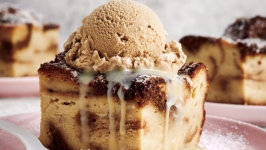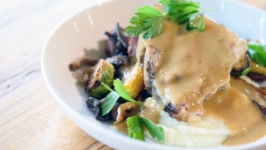Serving Up Sustainability
The restaurant industry generates tons of trash. There's the leftover food customers don't finish and the food scraps that never make it into their dishes. There's used cooking oil and a plethora of packaging, including paper, cardboard, glass, metal, plastic and of course, there are napkins and disposable cutlery.
Lots and lots of napkins.
In fact, 35.5 million tonnes of food produced in Canada is lost or wasted each year — that's equivalent to the height of almost 95 CN Towers.
However, located at 286 Princess Street in Kingston, nestled in between a nail salon and art supply shop, you'll find a quiet little green revolution underway in the guise of a Miss Bāo Restaurant + Cocktail Bar where partners in life and co-founders in business, Bellen Tong and Zach Fang, are on a mission to redefine the future of the hospitality industry by working towards a zero- waste establishment.
For Tong, who also holds a degree in biomechanical engineering from Queen's University, she found herself drawn to the idea of environmental sustainability in the food industry while pursuing her culinary education at the prestigious George Brown Culinary school in Toronto. Having worked in the food services since she was young, forward-thinking Tong grew tired of seeing so many bags of waste being tossed away at the end of the day by bars and restaurants simply due to lack of proper recycling and waste sorting capabilities. She felt a change, and a zero-waste operation had to begin somewhere.
"Sustainability [for restaurants] and zero-waste is much more than just eliminating food waste," explains Tong, Miss Bāo's Manager of Operations. "It also takes into consideration energy conservation, solid waste management, material end-of-life, transportation, supply chain, repair and maintenance."
Taking its name from one of Tong's culinary specialties: bāo, a traditional Northern Chinese dish, Miss Bāo brings something new to the community, not only as a restaurant that is the fusion of cultures, countries and cuisines, as well as locally sourced ingredients and state-of-the-art composting technology, but perhaps most importantly of all, as the realization of a vision to create an environment that surpasses just food.
"We want to work towards building a sustainable community. Collaborating and supporting like-minded individuals who believe in a sustainable future for everyone," says Tong. "With our restaurant, my husband and I hope to not only innovate the hospitality industry, but also to support our community in providing jobs in small business and in understanding the importance of environmentalism."
It's a philosophy that supports team collaboration. Tong explains that she and her husband maintain day jobs (her in hospitality and him in finance) and strive to supply as many hours to their staff as possible. They have created an environment where they close their doors to the public Monday through Wednesday. The entire staff comes together to pitch ideas, including new menu items and recipe development.
It's also a philosophy that advocates for redesigning resources in the waste management cycles for reuse, which mirrors nature and drives how Tong and Fang operate their business while allowing them to source, prepare and serve food and drinks consciously. They are the seven R's of sustainability, which are: Rethink, Refuse, Reduce, Repurpose, Reuse, Recycle and Rot.
From the beginning, Tong and Fang looked at traditional restaurant design from various facets and always through the lens of the seven Rs. For example, they do not accept plastic packaging from suppliers, preferring to use bins to transport their goods and produce back and forth. They accept as few paper bags as possible, and they prefer to shop at the local bulk store, Tara Natural Foods, to gather dry goods, spices and more.
They also explored options for more creative, sustainable and efficient adaptations for the interior elements of their restaurant. They added an onsite in-vessel composter to help break down all the restaurant's food waste, creating clean, nutritious and odourless compost. They evaluated portion sizes and the tableware they set and even rethought their business cards, stamping them on old menus and paper scraps.
"Our business has been operationalized to support our goals. Where we can, we've decided to use local and seasonal ingredients, to purchase or rent energy star certified used or refurbished equipment, to hire talent and trades and to consider the material end of life while purchasing furniture, lights, tableware and décor," says Tong.
At Miss Bāo, the menu typically hosts up to 14 seasonal items that are 65 per cent vegan to cut their food carbon footprint and help reduce the total impact of CO2.
There is no beef on the menu; instead, Tong and Fang source pork and chicken from the Kingston-based meat shop, Pig & Olive. While they do not use a ton of dairy in their cooking, when it's needed, they source milk products from Limestone Organic Creamery in Elginburg, Ont.
Customers can dine on handmade beet green tempura, carrot top pancakes, and pork skin sausage at tables designed and madeby a local carpenter. They can enjoy soups (a favourite of Tong's to make), stocks made with vegetable trims, and sip on cocktails made with citrus peels and aquafaba — an excellent replacement for egg whites in cocktail shaking.
Nutrient-dense microgreens, grown onsite in an urban cultivator (think: fridge with growing lights), garnish most dishes. Smaller than baby greens, these tiny vegetables are delivered to them as seedlings from Primal Growth in Yarker, Ont. Once harvested, Miss Bāo often shares their bounty with other local businesses, including Main Street Urban Farm.
Tong and Fang knew their mission to lessen their restaurant's environmental impact while running a profitable venture would have its challenges, but what they didn't foresee was the first COVID lockdown in April 2020.
As a newly established restaurant, they had yet to open their doors to the public, but had built their core team of servers and staff and had spread the word all over Kington about their impending grand opening. Like so many other small businesses at that time, Miss Bāo had to find a creative way to serve their eagerly waiting customers and develop a new product, yet remain true to their vision of reducing environmental impact.
And so, they introduced the Miss Bāo Stay Home Club Meal Box.
Delivery packaging is historically the weak link for establishments attempting zero waste. Still, Tong and Fang were able to find 100 per cent compostable packaging materials and sourced all their ingredients for the meal boxes from local suppliers.
"We delivered only once a week," explains Tong. "We'd carefully plan the delivery route to optimize efficiency, as well as minimize the transportation impact. We included composting tips with our recipes and taught our consumers about the correct way of disposing of and composting the packages."
As more entrepreneurs like Tong and Fang start to embrace the idea of sustainability and strive to better understand the impact of the food services industry on the environment, the idea of a throwaway culture is no longer acceptable.
"The foodservice as a traditional industry is very slow in terms of changes in general," suggests Tong. "Zero-waste is not equal to no waste or no food waste — it's more of the statement of low-impact operation.”
Miss Bāo Restaurant + Cocktail Bar
286 Princess St., Kingston, Ont.
missbao.ca | 613.545.0123 | @missbaokingston


